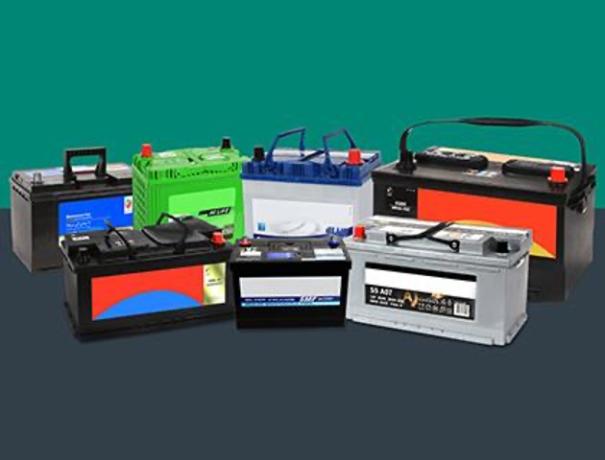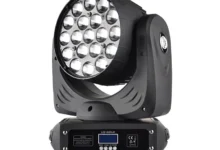Essential Tips for Choosing the Right Car Battery for Your Vehicle

When you want to buy a car battery, it’s crucial to understand the many options available. The right battery not only powers your vehicle but also affects its overall performance. Similarly, just as selecting the appropriate car battery is essential for your vehicle’s efficiency, choosing the right power source for LED solar street lights is vital for optimal illumination and energy savings.
In this guide, we will explore essential factors to consider when purchasing a car battery, ensuring you make an informed decision. From understanding battery types and capacities to considering environmental conditions, these insights will help you find the perfect fit for your vehicle’s needs.
Understanding Car Battery Basics Before You Buy
To successfully buy a car battery, you should first familiarize yourself with its components. A car battery is a rechargeable device that stores electrical energy. It provides power to start your vehicle’s engine and supports electrical systems like headlights, infotainment, and air conditioning.
The most common type of car battery is the lead-acid battery, known for its reliability and affordability. However, there are other types, such as AGM (Absorbent Glass Mat) and lithium-ion batteries. Each type has unique features, advantages, and disadvantages.
Factors to Consider When You Want to Buy a Car Battery
1. Vehicle Compatibility is Key
Before you buy a car battery, check your vehicle’s specifications. Car batteries come in various sizes and power capacities, and selecting the right one is crucial. Refer to your owner’s manual to find the recommended battery group size and specifications for your car model.
2. Cold Cranking Amps (CCA) Matter
Cold Cranking Amps (CCA) indicate a battery’s ability to start an engine in cold temperatures. If you live in an area with harsh winters, it’s advisable to choose a battery with a higher CCA rating. This will ensure your vehicle starts smoothly, even in freezing conditions. On the other hand, if you live in a milder climate, you might opt for a battery with a lower CCA.
3. Reserve Capacity (RC) Explained
Reserve Capacity (RC) measures how long your battery can run without being charged. This is particularly important if you often find yourself in situations where your vehicle’s alternator may not be providing enough power. A higher RC means your battery can supply power for a longer time, allowing you to use accessories without worrying about draining the battery.
4. Warranty Considerations
When you buy a car battery, consider the warranty offered. A longer warranty typically indicates a manufacturer’s confidence in their product. Most quality batteries come with warranties ranging from two to five years. A good warranty can save you money in the long run if your battery fails prematurely.
5. Brand Reputation and Reviews
Before making a purchase, research various battery brands. Some brands are known for their longevity and reliability, while others might have a history of issues. Customer reviews and expert ratings can provide insight into the performance of different batteries. Opting for a reputable brand can make a significant difference in your battery’s lifespan and performance.
6. Pricing and Budgeting for a New Battery
When you buy a car battery, price is a significant factor. While you want to find a good deal, remember that a higher price often correlates with better quality. Cheap batteries may save you money upfront but could lead to higher costs in the future due to poor performance or a shorter lifespan. Setting a budget can help narrow your options, but be flexible if a better-quality battery falls slightly outside your price range.
7. Environmentally Friendly Options
If you’re concerned about the environment, consider eco-friendly battery options. Many manufacturers now offer recycled lead-acid batteries or lithium-ion batteries, which are less harmful to the environment. Additionally, look for programs that recycle old batteries, ensuring they don’t contribute to landfill waste.
When to Buy a New Car Battery
Knowing when to buy a car battery can save you time and frustration. Some signs indicate your battery may need replacement, including:
- Dimming headlights or electrical issues
- Difficulty starting your vehicle
- Swelling or leaking battery case
- Age of the battery exceeding three years
If you notice any of these symptoms, it’s best to have your battery tested by a professional to determine if it needs replacing.
FAQs
How do I know which battery to buy for my car?
Check your owner’s manual for the recommended battery specifications, including group size, CCA, and RC ratings.
Can I install the battery myself?
Yes, if you’re comfortable with basic automotive tasks, you can install a battery yourself. Ensure you follow safety precautions and disconnect the negative terminal first.
How often should I replace my car battery?
Car batteries typically last between three to five years. However, factors such as climate and driving habits can affect their lifespan.
What should I do with my old battery?
Most auto parts stores and retailers offer recycling programs for old batteries. You can also check local regulations for proper disposal methods.
Is it worth paying more for a premium battery?
Yes, investing in a premium battery often results in better performance and longevity, saving you money in the long run.
Conclusion
Choosing the right car battery is essential for ensuring your vehicle runs smoothly and efficiently. When you buy a car battery, consider factors such as vehicle compatibility, CCA and RC ratings, brand reputation, warranty options, and environmental impact. By taking these steps, you can make an informed decision and enjoy a reliable driving experience.





